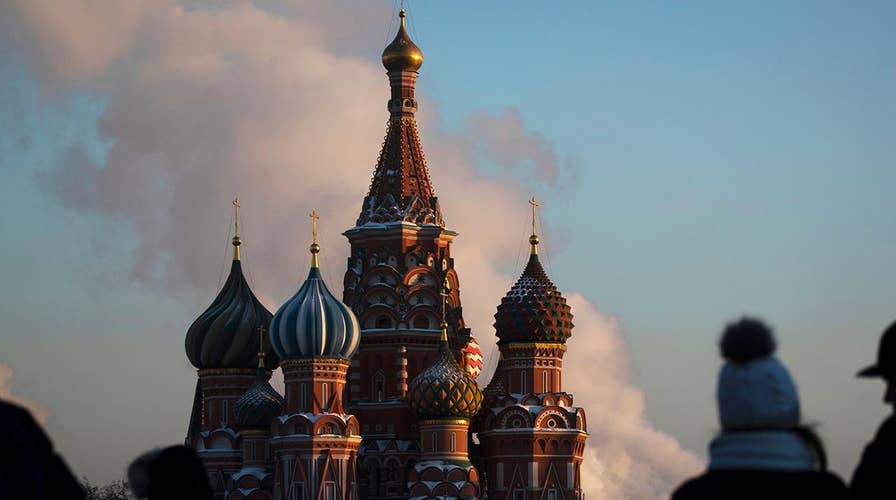If you believe, as I do, that the overriding imperative of the special counsel investigation was simply that Robert Mueller complete it without interference, you should feel satisfied. By all accounts, he was given free reign. And if you trust that Mueller did the job fairly, as I do, you must accept his apparent conclusion that no crime was committed by the Trump campaign or anyone associated with it to conspire with Russia during the 2016 election.
However, that doesn’t mean there aren’t lingering questions about collusion that may be answered in Mueller’s report, even though they weren’t answered in Attorney General William Barr’s summary of its findings.
Most importantly, how did Donald Trump’s advisers engage in seemingly inappropriate contacts with Russians during the campaign and not break the law? Were those contacts part of a concerted effort by the Russian government to curry favor with campaign staff members? What protections are there to ensure these contacts do not cross the line next time?
MUELLER REPORT JUST ONE WEAPON IN THE POLITICAL WAR THAT TRUMP STARTED
These questions are important because future campaigns, on both sides of the aisle, will be approached by foreign adversaries like Russia. As Director of National Intelligence Dan Coats wrote last year, influence operations “will remain a significant threat to U.S. interests as they are low-cost, relatively low-risk, and deniable ways to retaliate against adversaries, to shape foreign perceptions, and to influence populations.”
Therefore, it would be dangerous to use Mueller’s “no collusion” decision as an excuse to whitewash all that happened in the 2016 campaign, as Trump attorney Rudy Giuliani seemed to do this week by saying we should all “breathe a sigh of relief that the president of the United States and all the people around him did not engage in the horrible crimes that these people were saying.”
Yes, Americans can be relieved that there were no crimes, but not relieved by the conduct that Mueller uncovered.
Yes, Americans can be relieved that there were no crimes, but not relieved by the conduct that Mueller uncovered.
For instance, we now know, because of Mueller, that Trump’s campaign chairman, Paul Manafort, passed along secret polling data to Russian national and known affiliate of Russian intelligence agencies Konstantin Kilimnik, at the same time that Russian intelligence agencies were conducting media influence campaigns in the U.S. that could have used that data.
If Mueller concluded that this did not meet the elements of a specific crime, we can accept that. But we should not accept that it was anything close to appropriate behavior for a presidential campaign chairman. To do so would be to encourage future campaigns to share private data with foreign adversaries and invite even more, not less, interference.
We also know from Mueller’s indictment of longtime Trump aide Roger Stone that Stone was communicating with WikiLeaks in June and July 2016 about its publication of materials that Russians hacked from the Democratic National Committee and Hillary Clinton Campaign Chairman John Podesta, and that Trump campaign officials encouraged Stone to learn more about when they would be published.
Stone wasn’t the only Trump confidante to engage with WikiLeaks – Donald Jr. acknowledged private Twitter messages with WikiLeaks in September 2016.
There are other very curious interactions between Trump campaign officials and Russia that the public now knows about because of the Mueller investigation, but which were never fully explained.
In June 2016, Manafort, Donald Jr. and Jared Kushner held the infamous Trump Tower meeting with Russians offering “dirt” on Hillary. Clinton Later, in July, while Manafort was still campaign chairman, the Republican platform was suddenly changed to eliminate support for arming Ukraine to defend against Russia.
In the transition, right after Trump was elected, Trump’s national security adviser, Michael Flynn, discussed relieving sanctions on Russia with the Russian ambassador and was so worried about the implications of it that he lied to the FBI. Then, in one of the more bizarre revelations, Jared Kushner wanted to establish a “secure line” with Russians to discuss things we still do not know about and wanted to use the Russian mission to the U.N. as his base.
Barr’s summary of Mueller’s report may have accurately pointed out that none of this was illegal. But neither Barr nor Mueller should want to leave the impression that these were normal interactions for a campaign.
Each interaction in its own way could have compromised U.S. national security, sent an unintentional message of support for Russian interference efforts, and given the impression to future White House hopefuls that communications with a foreign adversary are permissible and maybe even helpful.
CLICK HERE TO GET THE FOX NEWS APP
The only way to correct this impression is to reveal Mueller’s findings about the context for these Russian efforts, the extent to which they were connected, and where Mueller drew the line between inappropriate and illegal, so we can ensure future efforts do not cross that line.
Democrats and Republicans should come together to endorse Mueller’s findings on the lack of evidence of a crime of conspiracy. But they should also come together to condemn conduct that the report describes that while perhaps legal, was not proper.
